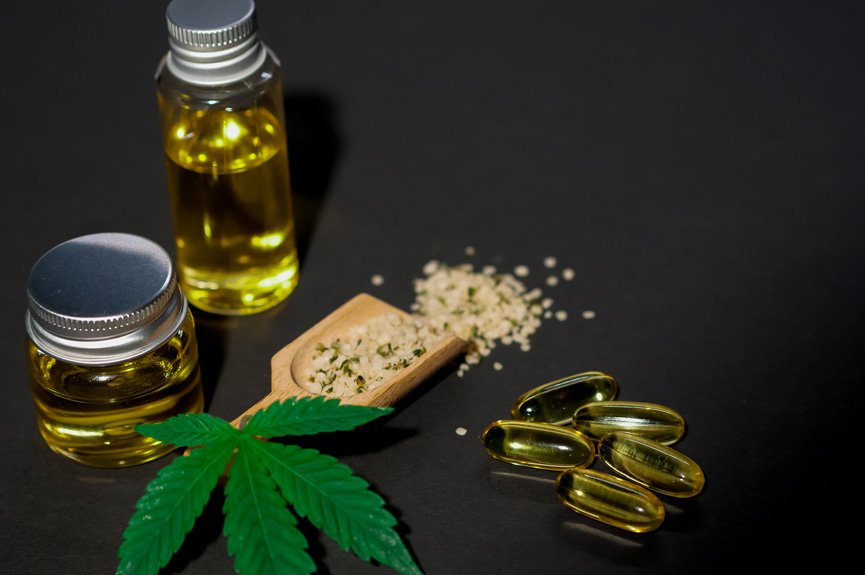At the rate at which cannabinoids are introduced to the public, it is becoming increasingly difficult to keep up with the trend. Every other day, there is a new buzzword within the cannabis ecosystem that describes a different cannabinoid we never knew existed. The Delta-8 THC group, which includes THC-O and THCA, and the array of Delta-9 sub-derivatives, are among the most popular in recent times.
Research has shown that these classes of cannabinoids, though similar to their parent molecules, are different in many respects. Today, we consider two of the most popular up-and-coming compounds in the industry (Delta-8 THC and THC-O Acetate) with a view to determining how they relate and differ from each other.
Delta-8 THC
Delta-8 THC is one of many naturally occurring cannabinoids in the cannabis plant, but it occurs in such a small quantity that it is almost insignificant. To make up for its small quantity, researchers have found ways to synthesize concentrated quantities of Delta-8 THC from CBD or Delta-9 THC.
Fun Fact: Delta-8 THC can be produced from either CBD or Delta-9 THC.
How it is made: Delta-8 THC is derived from legal CBD or Delta-9 THC through a process known as isomerization. Essentially, Delta-8 THC is produced by refluxing CBD or Delta-9 THC in an organic solvent such as heptane or toluene with p-toluene sulfonic acid or other compounds acting as a catalyst.
Delta-8 THC shares a similar bond structure with Delta-9 THC and both produce quite similar effects. Although Delta-8 THC can be synthesized from both Delta-9 THC and CBD, the latter is often the preferred molecule for very obvious reasons. Delta-8 THC made from CBD enjoys the same legality as CBD and is not encumbered by the stifling restrictions that are in place for Delta-9 THC and its sub derivatives.
Effects: Delta-8 THC is more similar to Delta-9 THC in the psychoactive effects it produces than it is to any other substance. However, it provides more medicinal and wellness benefits than a psychotropic high, which is why it is gaining popularity among a wide range of cannabis enthusiasts. Many consider Delta-8 THC the legal, more balanced Delta-9 THC high with very potent therapeutic benefits.
In comparison with THC-O Acetate, Delta-8 THC does not produce strong "high" effects. However, users have reported significant highs when they use higher doses of the substance within a short period of time.
Legality: Delta-8 THC stands on the threshold of legality. In some states across the United States, the substance is legal, while in others, the legal status is shrouded in mystery. However, federally, you are not likely to encounter problems with the law when you use Delta-8 THC because it is considered a sub-derivative of CBD, and CBD is legal in most parts of the country.
THC-O Acetate
THC-O Acetate on the other hand, is an isomer of Delta-8 THC; it does not occur naturally and so must be produced from an existing hemp product. The substance is an acetylated form of Delta-8 THC produced in laboratory settings. Acetylated compounds are fairly common in pharmaceutical procedures. Some common compounds, like aspirin, are acetylated forms of their parent molecules.
How it is made: Essentially, THC-O Acetate is made from Delta-8 THC. It is made by acetylating purified Delta-8 THC extracts with acetic anhydride. The result is a substance with similar properties to its parent molecule but insanely stronger psychedelic highs that have won the hearts of many.
Researchers found that acetylating cannabis and cannabis derived substances does not cause significant change in properties however; they have noted that in most acetylated derived substances, potency is increased exponentially.
Effects: The effect of the acetate is more spiritual and psychedelic than that of the ordinary products. Many have commented that THC-O Acetate produces highs that are 3-5 times stronger than Delta-9 THC. But the most unique property of this substance is that there is a delay of about thirty minutes before its effects are felt. This features calls for caution particularly for first-time users.
Legality: At the moment, the substance is not scheduled, thus unregulated, or in some cases, viewed through the lenses of its parent molecule. As with Delta-8 THC from which it is made, THC-O Acetate is considered a legal lab-derived isomer of Delta-8 THC.
Delta-8 THC and THC-O – Understanding the Difference
Delta-8 THC and THC-O Acetate might be similar in many respects, they even share the same parent molecule but their effects greatly differ.
In how they relate, Delta-8 THC and THC-O Acetate share a common source – CBD. While Delta-8 THC is often made from legal CBD, THC-O is made by acetylating Delta-8 THC. This makes Delta-8 THC the parent molecule for THC-O, but in a wider perspective, they share the same ancestry and, as such, they are bonded legally by their roots.
But that’s just about how similar they are. In terms of effects, they are in sharp contrast with each other. While Delta-8 THC offers a therapeutic effect with a subtle high, THC-O embodies all the therapeutic effects of Delta-8 THC, but with more intense high and potency. THC-O is renowned for its spiritual, psychedelic effects and very strong, head-raving high. In all respects, THC-O Acetate offers a much stronger effect than Delta-8 THC, leading many to conclude that it is more potent.

